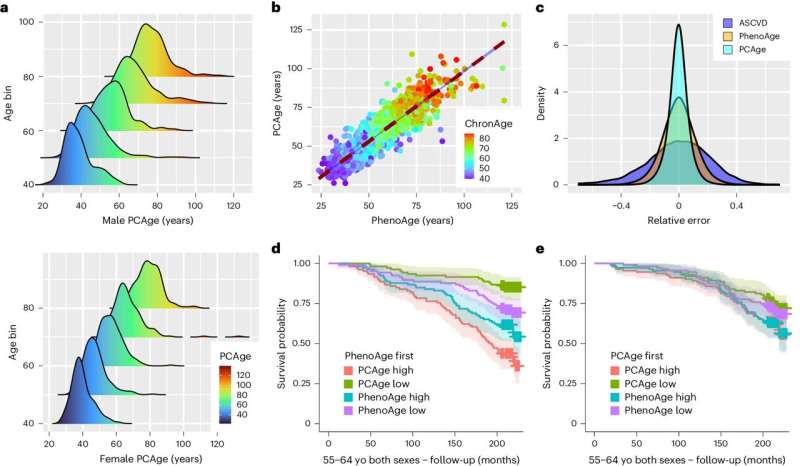June 21, 2024 report
This article has been reviewed according to Science X's editorial process and policies. Editors have highlighted the following attributes while ensuring the content's credibility:
fact-checked
peer-reviewed publication
trusted source
proofread
Data analysis shows that adopting therapeutic changes can lead to longer lifespan

A combined team of longevity specialists, gerontologists and biochemists from Singapore General Hospital, National University of Singapore and Yale-NUS College, Singapore, has found that people who take appropriate steps to promote their longevity can live longer if they follow certain guidelines.
In their study, published in the journal Nature Aging, the group analyzed aging-related data from several sources.
Over the past several years, medical researchers have come to believe that humans have both a chronological age and a biological age. The former is fixed by year and works the same for everyone. The latter is dependent on a host of factors, most of which are based on hereditary, environmental and lifestyle choices.
For many years, the medical community has assumed that people who choose to make certain changes in the way they live can lengthen their lifespan—eating healthier foods, getting exercise and avoiding dangerous activities, for example. For this new study, the researchers sought concrete evidence showing such assumptions are correct.
The researchers analyzed training datasets from the National Health and Nutrition Examination Survey containing medical information for 1,476 men and 1,536 women between the ages of 40 and 84.
They documented outcomes for people who had undergone treatment for diseases or conditions that are known to impact longevity, such as cardiac and renal problems and/or conditions that cause chronic inflammation, and compared them with those who had not. They found close correspondence between the two aging benchmarks, though they noted that there were some significant residuals.
The researchers next compared what they describe as a streamlined aging clock and compared it with what they describe as a clinical aging clock and found they both performed in similar ways when used to measure the likely longevity of a given person. They also found that both were better predictors of longevity than chronological age clocks.
The team then looked at data from the CALERIE study, which involved the impact of a restricted diet on longevity, and found that just two years on the diet led to significant reductions in biological age.
More information: Sheng Fong et al, Principal component-based clinical aging clocks identify signatures of healthy aging and targets for clinical intervention, Nature Aging (2024). DOI: 10.1038/s43587-024-00646-8
© 2024 Science X Network


















